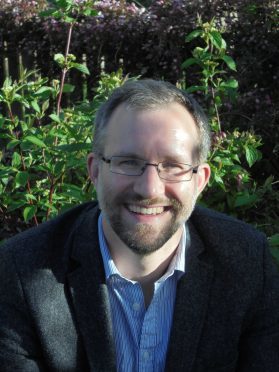A new project to unlock the secrets of Aberdeen’s ancient records has been awarded funding of £310,000 for research which will be carried out over three years.
Dr Jackson Armstrong, from Aberdeen University, will lead the ambitious project, which is being supported by the Leverhulme Trust and will focus on the burgh records between 1398 and 1511.
Commencing on March 1, 2016 the research will be based at the University’s Research Institute of Irish and Scottish Studies.
Dr Armstrong said: “We first applied for funding in December 2014, and it is an extremely competitive and thorough application process for a very prestigious award which we are delighted to have received.”
“We will be using the funds to look at how the use of the law changed over time and the basis for that change.
“Our previous research into the records uncovered letters written by King James V and showed he became directly involved following accusations that the cargo of a shipwreck had been plundered.
“We also discovered that Aberdeen frequently upset its European neighbours with a perceived leniency towards piracy.
“It is a great privilege to lead the team that will open up the text of Scotland’s most important local records from the later middle-ages.”
The project continues the quest to explore Aberdeen’s secret history, which stretches back to the 14th century.
Councillor Neil Cooney said: “It is fantastic that the Leverhulme Trust has made this funding award as it will help to shed light on a period of the city’s history that has hitherto been relatively under-investigated.
“We are excited about opening up the amazing history of our city in this way and the potential that the funding award presents to enable people to discover more about life in the medieval burgh, and the wider world beyond.”
Phil Astley, Aberdeen City Council’s archivist, said: “This is a tremendous opportunity for exciting new work with Aberdeen’s important collections.
“We are pleased to be involved in this project which has such long-term potential to enhance Aberdeen’s wider cultural offering.”
